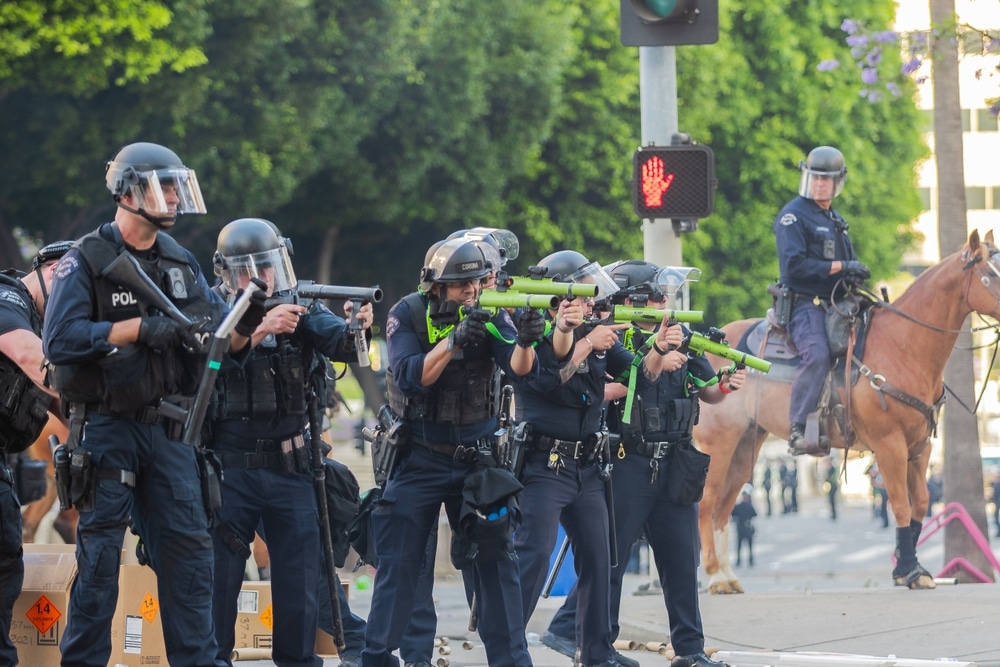This spring, a 19-year-old university student named Ximena Arias-Cristobal was sent to an immigrant detention center in Dalton, Georgia, for an alleged traffic violation. The traffic charges were eventually dropped, but it was too late. Authorities in Dalton had already called ICE under a federal program that turns police encounters into deportation pipelines.
With her final exams approaching and her family’s future depending on her academic success, Ximena was detained in a privately run detention center notorious for inhumane conditions and severe rights violations.
Unfortunately, her story is not an isolated incident. It’s part of a broader reality across the country as local police departments become extensions of federal immigration enforcement through what are called 287(g) agreements.
That refers to Section 287(g) of the 1996 Illegal Immigration Reform and Immigrant Responsibility Act. The program authorizes ICE to train and deputize state and local law enforcement to carry out immigration duties, effectively turning police officers into ICE agents while conducting their routine police work.
287(g) perpetuates racial profiling and other civil and human rights abuses. But the Trump administration is leading a big push to expand the program. Since the beginning of the second Trump administration, there’s been a 566 percent increase in 287(g) agreements, with 765 new agreements signed nationwide as of mid August.
These agreements are generally limited to certain cities, counties, or state agencies. But states like Florida and Georgia have passed laws requiring all counties in their states to participate in 287(g). Florida Governor Ron DeSantis even pushed universities to sign agreements that turn college campuses into targets of mass deportation. Apparently no space is safe for immigrant communities.
This program is eroding public safety and trust in law enforcement. When people fear that dialing 911 could result in the deportation of themselves or a loved one, crimes go unreported, victims stay silent, and witnesses refuse to cooperate with criminal investigations.
A 2018 study by the Cato Institute found no evidence that these partnerships with ICE decreased crime rates. They simply made communities less safe for everyone.
Expanding 287(g) agreements normalizes racial profiling and discrimination. That led President Obama to scale back the program in 2012 after repeated instances of constitutional abuses in Maricopa County, Arizona, yet it’s been resurrected under Trump and is now growing exponentially.
And so are the abuses.
Jose Alvaro was buying baby formula when he was arrested in Lubbock, Texas, after police pulled him over for a license plate issue and called ICE. Despite having no criminal record, Alvaro was kept in immigration detention, leaving his wife and three children alone.
Despite the administration’s claim that it’s focusing on deporting “criminals,” stories like Jose’s Ximena’s are no exception. In one recent study, 71.5 percent of the 57,000 immigrants in ICE custody had no criminal convictions.
It’s clear these agreements are making our communities less safe. But other states are fighting back. California, Oregon, Washington, Illinois, New Jersey, and Colorado provide blueprints for resisting this program statewide. They’ve already passed laws restricting local cooperation with ICE, outlawing 287(g) in all counties.
Other state lawmakers must follow their lead and refuse to turn their communities into hunting grounds for vile immigration policies. Local officials can also do their part to reject 287(g) agreements, prioritizing community safety over deportation quotas.
We can also pressure universities and institutions to reject pressure to implement these agreements. The Immigrant Legal Resource Center (ILRC.org) provides a toolkit to mobilize against expanding ICE authority and a map of agreements across the country.
Call your representatives and local police, and talk to your friends and family. Together we can protect our immigrant neighbors — and make our communities safer for everyone.
This op-ed was distributed by OtherWords.org.






